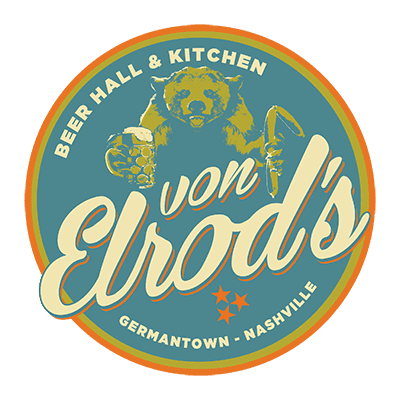Read the full article here.
Get ready, autumn bachelor and bachelorette party attendees: Nashville is home to the U.S.’s second-largest Oktoberfest celebration, held this year October 10–13. The celebration is expected to attract more than 250,000 people. It’s a number that pales in comparison to Munich’s expected 6 million but lands it solidly on the list of the biggest celebrations in the U.S. (Cincinnati is the biggest with about 500,000 attendees.) It’s size ties it with the Denver Oktoberfest, at least according to anyone’s best guesses. “Festivals like this one, which span ten city blocks, can be tricky to gauge,” says Dave Jones, the event’s director of media relations. “But things like ticket sales, event registration and the official Nashville Oktoberfest phone app helps us track attendance levels.” Nashville’s Oktoberfest is also one of the oldest, celebrating 40 years of stein swinging in 2019.

Guests at Nashville’s 2018 Oktoberfest celebration
CREDIT: VON ELROD’S BEER HALL & KITCHEN
Reputation for partying aside, Nashville may seem like a surprising location for hosting such a large celebration of German traditions. But the city has had a sizable German population since the mid-19th century when German immigrants established the Germantown neighborhood of Nashville. Despite being culturally homogenous, the population was diverse in terms of career paths and incomes, which created a vibrant social scene. The roots of the Oktoberfest celebration can be traced to 1980 when a neighborhood church began hosting an annual German dinner every October. “Each year, the dinner gained more and more traction and eventually became a community tradition,” says Jones. “Eventually, the Germantown Neighborhood Association started promoting it as a weekend event.” The event was taken over by the owner of Monell’s, a popular neighborhood restaurant, who expanded it into the massive celebration it is today.
As anyone who’s been to Munich for the official and original Oktoberfest knows, the heart of the celebrations are in beer houses or beerhalls. A beerhall is usually a large open room or outdoor space in which patrons sit at long communal tables. The concept started in Munich in the 1800s. Many of the first biergartens are still open in the Bavarian city, including the famous Hoffbräuhaus and Paulaner Bräuhäuser.
Fortunately, Nashville’s Oktoberfest celebration has its resident bierhaus tradition, thanks to Von Elrod’s Beer Hall & Kitchen. There are plenty of options for where to drink during the festival – nearly anywhere in the festival is an option, really – but the epicenter of the action is at the large indoor and outdoor taphouse. Von Elrod’s has more than three dozen beers on tap year-round including, of course, hefeweizens and witbiers. The restaurant is always social thanks to year-round communal seating, but for Oktoberfest, the restaurant sets up a massive tented beer garden; naturally, pretzels and brats are on the menu.

Stein holding is a popular activity during Oktoberfest at Von Elrod’s Beer Hall & Kitchen
CREDIT: VON ELROD’S BEER HALL & KITCHEN
Beer tastings are available from Munich-born breweries Hacker -Pschorr and Paulaner throughout the grounds, though local breweries will also have their best suds on tap. For non-beer drinkers, the craft beer gardens will be popping tabs on cans of alcoholic Wild Basin seltzer water from Oskar Blues Brewery. Jones says that while the festival squarely focuses on honoring and recreating the traditional spirit of the Bavarian original, they take over-imbibing very seriously. “With festivals of this size, we make sure to take every security measure possible,” he says. “From constant police presence to water barricades and 24/7 security, we work around the clock to ensure the safety of festival-goers.” The festival also partners with Freebird Rides, a company that encourages users to take rideshares by offering cash back and credits towards future rides.
The festival includes the usual entertainment expected at any good German festival, like a stein-holding contest and a steady chain of oompah, polka and Bavarian bands. But it also includes a few unexpected activities, like the well-loved Dachsund Derby. The low-stakes event pits participating dachshunds, a breed of German origin, against one another to see who can cross the finish line the first. A vet is on-hand, but the event is more about adorable dogs than it is serious competition.

The annual Dachshund Derby is less about serious competition and more about cheering on some of
CREDIT: NASHVILLE OKTOBERFEST
Admission to the festival is free, but a VIP option is available that includes unlimited beer tastings and priority access. There’s also a 5K run for attendees who want to burn off a few calories before the beer tastings begin. The festival is family-friendly and there are several charitable partners for whom the event raises money. Jones says that the festival is ultimately about celebrating the city’s heritage in a way that’s welcoming and fun for all. “At its core, this is our opportunity to really celebrate the traditions that were brought to our city,” he says. “while infusing the festival with a bit of Southern hospitality.”
